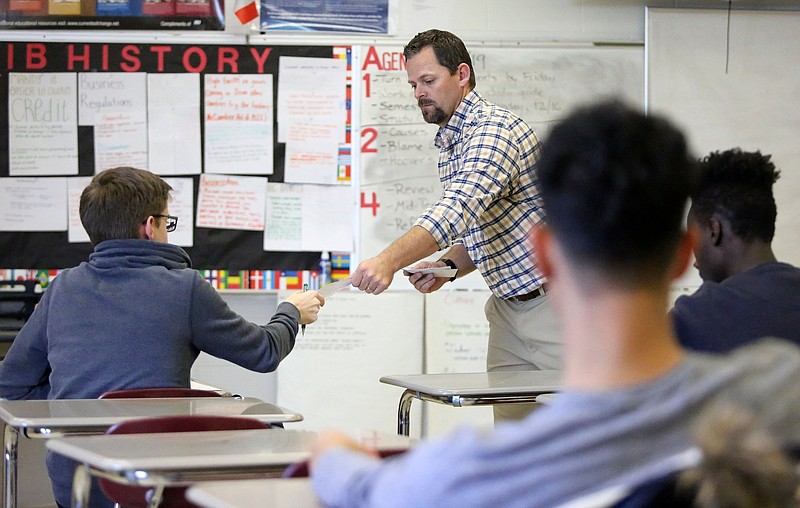It is saddening to think student brains are being called upon less and less these days to be the primary filtering agent over material they hear and read in classrooms from elementary school to college.
Instead, laws increasingly are being put in place that tell us what can't be taught, what shouldn't be read and what concepts students shouldn't be subjected to.
We're not naive, though. We understand the push to indoctrinate radical and secular ideas into public school and university minds is only on the increase and has been for most of the past century. So, we admit that sometimes certain guardrails have to be put in place.
But we wonder at what point some parents abandoned the concept of teaching their children to think for themselves, to weigh what they are hearing with what they knew, to consider there may be more than one way to think about a situation, to realize that what they believed may not have been quite true.
Once upon a time, we had a high school American history class that happened to occur in the year following the resignation of Republican President Richard Nixon over the Watergate scandal. We came to understand many years later the teacher in this class detested Republicans with the heat of a thousand suns but don't recall him espousing those feelings in his classes. Or if he occasionally did, we filtered them through a brain that had been taught that the misdeeds of a small cadre of men did not tarnish a political party or all those who believe in its principles.
In a college class we had, the same Nixon was held up by another American history teacher as the paragon of evil. He didn't make any bones about his feelings. But he was a good and interesting teacher. And because of being taught to think for ourselves, we didn't leave his classes feeling we needed to abandon everything we thought was true and adopt another worldview.
Other classes in history, sociology, political science and journalism provided concepts we'd never considered, opened our eyes to a wider world and challenged our thinking. We measured the concepts against what we knew to be true, what could be proven, took in some and rejected others, and broadened our mind.
Several decades have passed since those high school and college classes. The world is not the same. Those who would push us farther to the left, those who have abandoned traditional values and told us we are wrong for having them, are even more powerful.
But we still have our brains, if we'll use them.
Take books in school libraries. We're not sure if we read many books out of our high school library, other than for research, because we bought books with the money we worked for. Our parents trusted us to read a wide variety of books, and they may not always have been G-rated. But, again, they'd given us the background to interpret any language, sexuality and violence as part of the book and not something to adopt into our lifestyle.
Consider critical race theory. The concept of teaching that all American life should be considered through the lens of oppressors and victims and systemic racism is wrong and has no place in our classrooms. But Black history? Absolutely, bring on discussions on the importing of slaves, the causes of the Civil War, how newly freed slaves fell victim to wrongheaded Jim Crow laws, how the South was slow to embrace the equality of the races, and the many contributions Black people have made to the country.
And the bill in the Tennessee legislature on suing public colleges and universities if students and staffers think they're being punished for refusing to accept "divisive concepts" that "inflame divisions" over race, sex, ethnicity and religion. While no student or staffer should ever feel forced to believe something, we worry that the term "divisive concepts" is so vague it could cause a calamity of problems. Is it divisive to instruct a Christian taking a introductory religion class on the concepts of Islam or Buddhism? Is it divisive for a sociology class to discuss homosexuality?
We're not against parents being knowledgeable about the books available in their children's school, against Black history being part of American history because it certainly is, or about a wide range of subjects being taught in public colleges and universities.
But we feel it's far more important for parents (and, yes, not everyone is so fortunate to have two around, much less two who will be instructive) to help their children, teenagers and young adults to have a foundation, to be discerning, and to use that foundation to make good choices for themselves. In our view, that's better than indoctrination from one side or a legislated worldview from the other.
